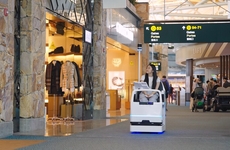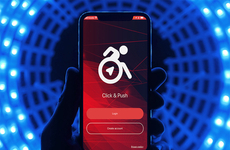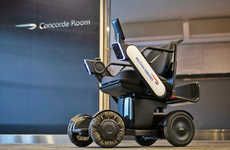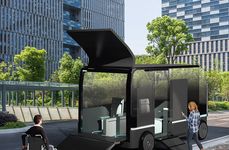
ATTRI is a Project by the Department of Transportation
People with disabilities deserve just as much access to transportation as those without, and fortunately the US Department of Transportation's Accessible Transportation Technologies Research Initiative (or ATTRI) is harnessing modern technology to allow for that equal access. The initiative is diving into methods through which city infrastructures can make use of technology in order to make cities more navigable for those with disabilities.
Autonomous vehicles are in the news constantly, but those AI driven vehicles aren't the only way that people with disabilities can benefit from modern transportation. Thanks to the internet of things and increasing numbers of connected devices, people with disabilities will be able to use smart devices for a bevy of purposes. Though ATTRI is still in the research phase, the Department of Transportation predicts features like responsive traffic lights and smartphone notifications built into the infrastructure of the city.
Autonomous vehicles are in the news constantly, but those AI driven vehicles aren't the only way that people with disabilities can benefit from modern transportation. Thanks to the internet of things and increasing numbers of connected devices, people with disabilities will be able to use smart devices for a bevy of purposes. Though ATTRI is still in the research phase, the Department of Transportation predicts features like responsive traffic lights and smartphone notifications built into the infrastructure of the city.
Trend Themes
1. Accessible Transportation Technologies - ATTRI is pioneering the development of accessible transportation technologies for people with disabilities.
2. Internet of Things for Accessibility - Connected devices and the Internet of Things offer opportunities for people with disabilities to access transportation through smart devices.
3. Smart City Infrastructure for Accessibility - ATTRI aims to use technology to create smart city infrastructures that are more navigable and inclusive for people with disabilities.
Industry Implications
1. Transportation - The transportation industry can explore the development of accessible and inclusive transportation solutions for people with disabilities.
2. Technology - The technology industry can leverage the Internet of Things and connected devices to create innovative solutions for accessible transportation.
3. Urban Planning - The urban planning industry can adopt smart city infrastructure solutions to improve accessibility and navigation for people with disabilities.
1.2
Score
Popularity
Activity
Freshness















